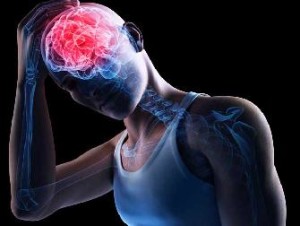Obtaining appropriate medical treatment for post-concussive symptoms from a w ork accident can be as frustrating as the symptoms of a concussion. A concussion is the term use to generally describe a head injury that may or may not result in the loss of consciousness. It is unusual for someone who has a severe blow to the head, such was when a freight elevator door hits the top of the skull, not to remember or be sure whether they lost consciousness.
ork accident can be as frustrating as the symptoms of a concussion. A concussion is the term use to generally describe a head injury that may or may not result in the loss of consciousness. It is unusual for someone who has a severe blow to the head, such was when a freight elevator door hits the top of the skull, not to remember or be sure whether they lost consciousness.
The most frustrating thing about concussions is that the CT scan of the brain may be normal, and there may be no other diagnostic evidence of an injury, but the post-concussion symptoms may persist. Those symptoms may include migraine-type headaches, dizziness, difficulty waking in the morning and sleepiness throughout the day, blurred vision, fatigue, and even depression. Because the cut on the head that was visible to co-workers is gone does not mean that the more troublesome symptoms are healed and gone, too.
Neurologists, the specialty physicians who are best trained to treat concussions, cannot predict exactly when an individual’s symptoms will subside. Other than prescribing pain medication for the most severe of the headaches, there is little the neurologist will do after ordering diagnostic testing to determine whether there is bleeding in the brain. However, a good neurologist can properly diagnose what symptoms you are having that may be caused by the work accident, and whether an injury to the cervical spine (neck) might also be involved and the cause of your pain. A neurologist will also educate you about your concussion and reassure you that barring any additional blows to the head soon after your accident, most concussions do not result in permanent brain injury.
It is difficult to rate post-concussive symptoms for permanent impairment under the AMA Guides to Evaluation of Impairment, 5th edition. Subjective pain complaints are not ratable. If the diagnostic tests ordered by the neurologist do not show a physical brain injury, testing by a neuropsychologist may nonetheless demonstrate a physical brain injury that can be rated. An individual would have to have supporting medical reports of a continuing brain injury for the adjuster to even schedule a rating evaluation. Then, the rating physician, who should be a medical doctor, will be looking for any disturbance in the level of consciousness or awareness that affect the activities of daily living, impairments related to memory loss and an inability to function, and any verifiable emotional or behavioral impairments.













